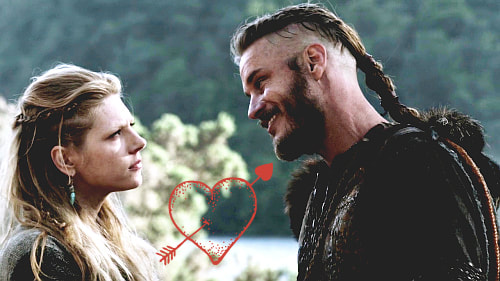 St. Valentine’s Day makes thoughts turn to love. In an RPG setting, love can be complicated to handle. Several attempts over the years have addressed it from the “lust” perspective, but there have been many mostly “indie” games that try to address it in a much more nuanced manner. If your genre includes romance at its core, an approach has been worked out to avoid the pitfalls and I recommend that you investigate one of those games. I think there are ways to address it in a more typical campaign (fantasy, horror, pulp, western, sci fi) that neither stray into uncomfortable areas nor ruin the feel of the campaign. Many television shows handle this very well by arranging for the more intimate moments to occur during a commercial break (or fade to black if you’re streaming). I’m going to look at this from the view of romantic love between two people and leave the many other kinds of love off the table until another blog. Let’s examine some ways that love can provide dramatic opportunities for your characters and campaign world. 1) Love As Distraction This is the typical case that comes up. Two characters see each other from across the crowded court, run into each other at a tavern, or find one another in a moment of drama as she breaks open the cell to rescue the Prince in Distress. There is electricity in the air either by proactive choice of the PC or the seductiveness of the other person. Whether this is handled purely through roleplaying or by some social mechanics, let’s assume there is a potent connection established. This connection will have a tangible impact on the character’s decision-making. Whether you are a courtier, hero, henchman, or noble, new love can be a serious distraction. Your thoughts turn constantly to the person you love and everything else seems much less important. Your quest, your oath, or your plots and designs can be easily derailed if you aren’t giving them your attention and energy. Others tend to notice and some are surely not happy about the situation. For characters that are pledged or devoted to a god, a king, or a cause, this provides a real challenge for the commitment. Generally those commitments don’t tolerate someone failing to live up to their word. Forgetting your duty to the king can get you imprisoned or even sentenced to death. Forgetting your duty to your god could imperil your soul and have you face difficult trials to earn your place again. Fellow devotees of a cause might find your wavering to be a threat to their success or even a sign of treason. Putting the character in a situation of having to choose between their new love and a commitment is critical to make these choices real and trigger the interesting consequences. 2) Love As Devotion On a more positive note, a character might plot the course of their life by a great devotion to their love. They will make choices that keep them in a position, role, or profession to stay near their love unless that proximity would endanger them in some way. Great devotions are sometimes lived through distance in that case. A character might have chosen a profession to honor or serve their great love. This works well if the love is high born and the character is a commoner. They might become a castle guard to do what they can to protect their love. Or become a caravaneer if their love travels often, hoping to follow them around the known world. Such love can survive even death. If ones true love has died but left the character charged with accomplishing something, it would be proof of their devotion to strive for that quest the rest of their life if necessary. 3) Love As Obsession If distraction is chaotic and devotion is good, obsession is the darkest form love can take, if love it can even be called. The object of the obsession may have refused their overtures or might not even be aware the character lusts for them. In a truly twisted version, the loved person might be fully aware and manipulate the obsessed person for their own purposes. The obsession can grow over time, starting with an infatuation but quickly escalating, exposing the obsessor’s underlying madness or evil intent. They would take ever increasing risks and make ever more grand gestures to prove to the loved person their devotion. Each time they are ignored or rebuffed only makes things worse. This is most appropriate for an anti-hero or an NPC. It would make an excellent basis for a villain, willing to cross all sorts of lines in their madness. Their obsession might be taken to epic proportions if they gain a position of power. The Trojan War began over obsession with the most beautiful woman in the world. The obsessed might seek to impoverish the object of obsession in order to drive them into their arms out of desperation. These techniques can be applied with player characters but also add a layer of reality and drama to NPC-NPC relationships as well. Consider the prince who has fallen for the wrong princess, upsetting the political plans of the king as just one example. I recommended bringing some love to your campaign this St. Valentine's Day. Jim Davenport founded Dragonlaird Gaming Studios in 2005 as a channel for his original tabletop RPG work. He’s an accomplished freelance writer with Knights of the Dinner Table Magazine (as a columnist) from Kenzerco, Margaret Weis Productions (Serenity, Battlestar Galactica, Cortex), and many others. He published Savage Characters Volume 1 a couple years ago and has plans to release a series of Savage Adventures soon. You can find his website at www.dragonlairdgaming.com. Picture Reference: http://flick-chicks.blogspot.com/2016/02/valentines-day-my-favourite-tv-romances.html Leave a Reply. |
All blog materials created and developed by the staff here at High Level Games Archives
April 2023
Categories
All
|
Proudly powered by Weebly



 RSS Feed
RSS Feed